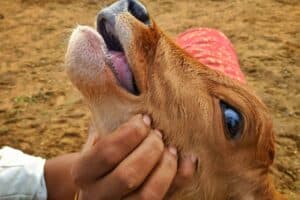The Tanzanian government said Saturday it had suspended an NGO it had accused of promoting gay marriage in contravention of local "customs, traditions and laws".
The move followed a police raid on a Community Health Education Services and Advocacy (CHESA) centre, which is accused of being involved in “the promotion of marriage between people of the same sex”.
The government said “marriages between people of the same sex are unacceptable in Tanzania as (they are) contrary to the customs, traditions and laws of the country”.
CHESA stands accused of organising last Tuesday a workshop for gay couples in a hotel in Dar es Salaam, the country’s largest city.
Police made 12 arrests Wednesday at the hotel, including two South Africans and a Ugandan, for presumed homosexuality.
In a joint statement Friday CHESA and South Africa’s Initiative for Strategic Litigation in Africa (ISLA), a fellow NGO, insisted they were merely coordinating a “legal consultation” to challenge a government decision to limit the provision of some health services.
In February, Tanzania provoked criticism notably from the United States after announcing the closure of several health centres specialising in AIDS prevention, alleging they were fronts for promoting homosexuality.
CHESA and ISLA said 13 arrests were made Tuesday, including ISLA’s executive director, Sibongile Ndashe, and added all were back in custody after bail was revoked Friday.
The organisations stated that “the Tanzanian constitution enshrines the right to seek legal redress when fundamental rights have been violated”.
They added Tanzania has signed the African Charter on Human and Peoples’ rights which “recognises an individual’s right to an appeal to competent national organs against acts violating his fundamental rights as recognised and guaranteed by conventions, laws and customs in force”.
The NGOs insisted the case against its workers had no legal basis and demanded an end to state persecution of lawyers and their clients.
Tanzania has vowed to deport foreigners campaigning for gay rights in a country where gay male sex is punishable by anything from 30 years to life imprisonment.
In July 2016, the government banned the import of some lubricant gels alleging they were used exclusively by homosexuals.
Health Minister Ummy Mwalimu said the sale and occasional free distribution of the gels encouraged gay sex.
According to Amnesty International, homosexuality is illegal in 38 of 54 African states and is punishable by death in Mauritania, Somalia and Sudan.
Uganda repealed a 2014 move to impose the death penalty on those found guilty of being gay.






